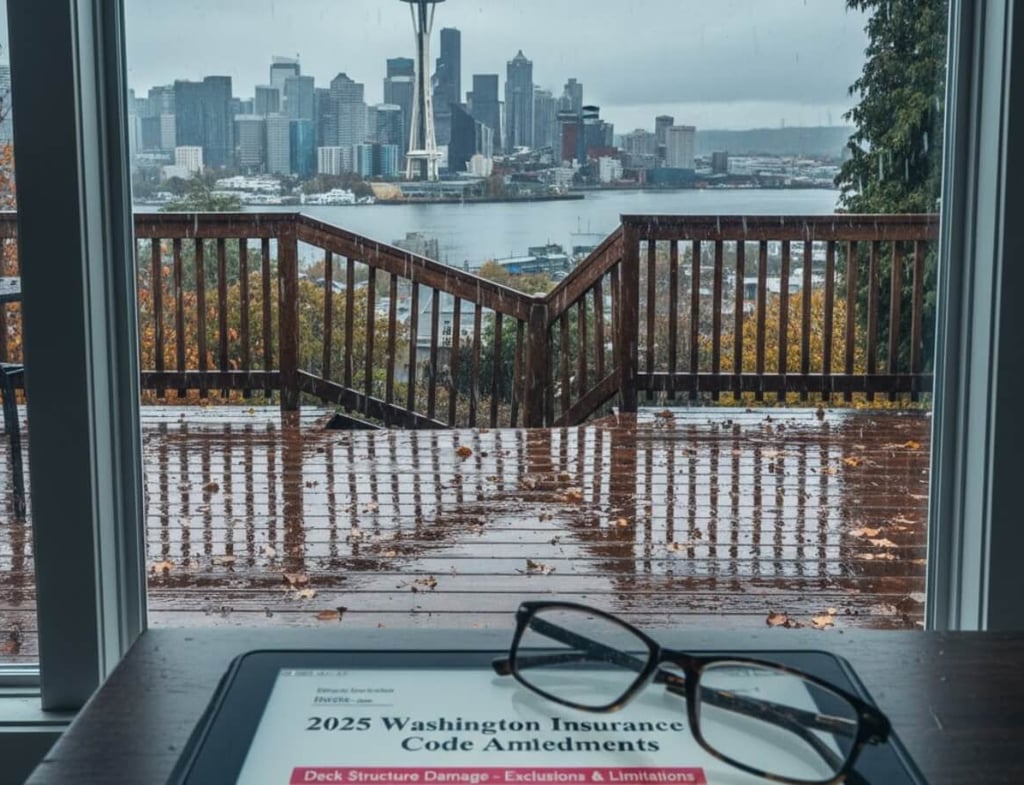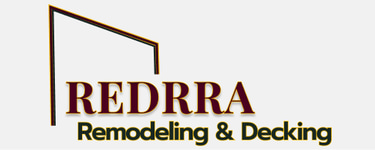How 2025 Insurance Updates Affect Deck Damage Claims in Seattle
Seattle homeowners are entering 2025 with shifting rules and rising weather risks that influence deck damage claims. New city processes, plus hazard guidance, change what adjusters ask for and how fast repairs move.
11/5/20253 min read


What’s New In 2025 That Touches Deck Claims
Seattle is refining permitting and technical rules locally. Design Review updates concentrate reviews on larger buildings and reduce steps, while homeowners still rely on SDCI for permits and inspections. A July 2025 draft updates stormwater definitions and minimum requirements that affect drainage near structures, including composite decks. SDCI also notes interim regulations taking effect in July 2025. See the City’s 2025 Design Review program changes, the July 2025 public review draft of the Stormwater Manual, and SDCI’s Tips page, noting interim regulations effective July 2025. Together, these shifts mean code details and site drainage are more visible in claim discussions.
Permits And Inspections: Your Deck Likely Needs
Most decks 18 inches or more above grade, roof decks, or decks in environmentally critical areas require permits; many qualify for a Subject-to-Field-Inspection (STFI) permit. After a permit is issued, SDCI performs inspections to verify that the work matches approved plans and applicable codes. If a deck was originally built without required permits, an insurer may question coverage for pre-existing hazards and ask for code corrections during repairs. Keep your permit history handy.
Do Low Decks Ever Avoid Permits?
Yes—simple platforms under 18 inches above grade and not over a basement typically do not require a building permit. Still, document dimensions and location; if storm damage shifts a low platform or attached stairs, that information helps your adjuster and sets expectations for repairs.
Why This Affects Claim Outcomes
Insurers often reimburse under conditions required by the current code when ordinance-or law coverage applies, but they can limit payment for unpermitted or noncompliant work. Having deck permits, final inspection approvals, and drawings helps show that damage was sudden and accidental—not the result of deferred maintenance or construction defects.
Hazards Shaping Deck Damage In Seattle This Year
Windstorms, heavy rain, and landslides remain the largest deck risks. Seattle emergency plans note that fall and winter wind events topple trees and cause structural damage, and city hazard mitigation guidance calls out landslides and flooding as persistent threats. These hazards drive many claims and heighten the need for quick documentation and safe site access.
Flooding And Your Policy
Standard homeowners' insurance does not cover flood damage; separate flood insurance is usually required. Seattle Public Utilities repeats this guidance and directs residents to flood information. If floodwater undermines posts, heaves footings, or deposits debris, document impacts and check your flood policy first.
Downed Trees And Utility Hazards
If limbs or entire trees strike a deck, contact Seattle City Light for issues near power lines and photograph the scene once it’s safe. Utility clearance and tree-related safety steps protect you and help establish cause for the claim.
Steps To Strengthen A 2025 Deck Damage Claim
Act fast, gather records, and align with local processes.
Capture Proof Right Away
Take wide and close photos, note the date and time, and include context such as fallen trees, saturated soils, or slope movement. If the deck sits in an environmentally critical area (steep slope, landslide-prone, or flood-prone), flag that in your report; the City maps these areas for review.
Pull Permits And Inspection History
Use the Seattle Services Portal and SDCI research tools to look up past permits and drawings. If none exist for a deck that should have been permitted, your contractor can help pursue the right path so repairs meet code and inspections can proceed during the claim.
Expect Drainage And Stormwater Checks
Because Seattle’s stormwater rules are under 2025 public review for updates, adjusters may pay closer attention to site drainage, downspout discharges, and erosion controls around repair work. Keep receipts and photos of any temporary measures (tarps, silt socks, pump-outs) you install to prevent further damage.
Coordinate Inspections Early
Once deck repair permits are issued, schedule SDCI inspections promptly so your claim doesn’t stall waiting for approvals. Inspectors verify work against plans and code; approval records are useful claim attachments.
Use The Latest Deck Guidance
SDCI’s deck tip sheet is regularly updated; recent posts clarified STFI checklists and removed delayed Wildland-Urban Interface items. Reviewing the latest tip before repairs can prevent re-work and smooth claim conversations about scope.
Need Help Turning Damage Into A Clean Claim File?
Redrra helps Seattle homeowners with deck assessments, permit-ready plans, and code-compliant repairs. We assemble photo logs, permit lookups, and inspection records that insurers commonly request, and we repair decks with materials and methods that meet Seattle standards. If your deck was hit by wind, rain, or slope movement in 2025, contact Redrra to evaluate damage, plan safe repairs, and keep your claim moving under Seattle’s current rules.
Your Home, Your Vision, Our Expertise.
Transforming Spaces with Unmatched Craftsmanship
© 2025. All rights reserved.
Proudly Serving Seattle & King County
Bellevue
Redmond
Bothell
Renton
Issaquah
Sammamish
Kenmore
Seattle
Kirkland
Shoreline
Mercer Island
Woodinville
Newcastle
…and many more across King County!
